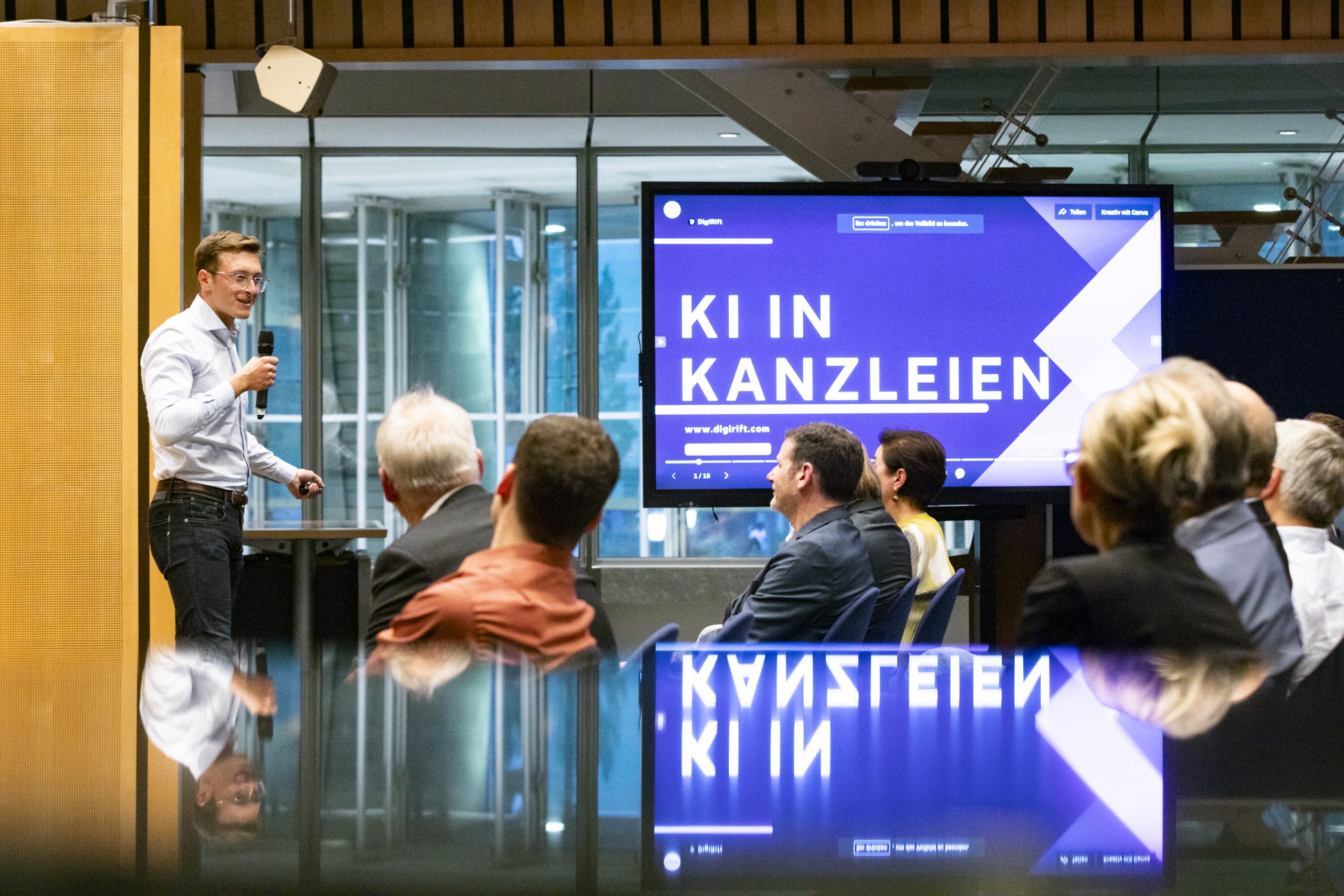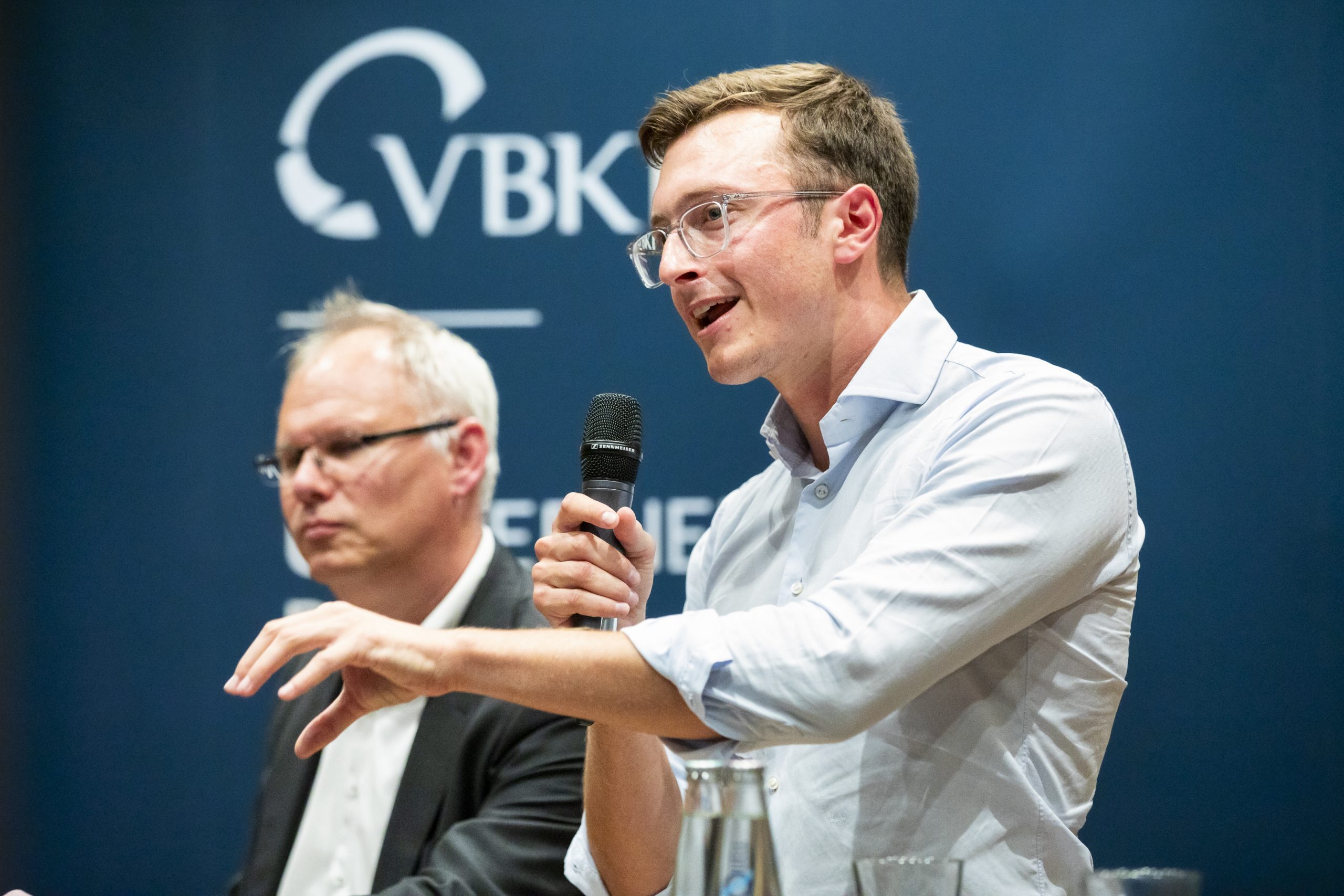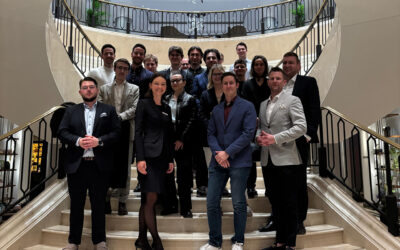Can artificial intelligence make mistakes?
Panel discussion on artificial intelligence in the day-to-day work of law firms
LIKE ALMOST ALL INDUSTRIES, LAW FIRMS AND TAX CONSULTANCIES ARE FACING MAJOR CHALLENGES DUE TO THE SHORTAGE OF SKILLED WORKERS. ARTIFICIAL INTELLIGENCE (KI) COULD PROVIDE A REMEDY. TO INVESTIGATE HOW LAW FIRMS VIEW KI, THE SWI - SOZIALWISSENSCHAFTLICHES INSTITUT SCHAD CONDUCTED A SURVEY AMONG LAW FIRMS, THE RESULTS OF WHICH WERE DISCUSSED AT THE VBKI
The result of the study: there is still a great deal of uncertainty - only 15% of respondents believe that they have a high to very high level of knowledge about AI, while 39% have little to no knowledge. Nevertheless, 84% of respondents can imagine using AI in their law firm. However, Marcus Schad, Managing Director of the SWI, explained that there are still a few unanswered questions to be answered before this can happen. 29% of respondents cited legal certainty, 23% employee acceptance and 20% a lack of use cases as the biggest problems when working with AI in day-to-day law firm work.
"We've already been through a wave of digitalization. Back then, too, we were told that everything would be easier from now on - but it wasn't. Instead, new work was added. It will be no different with the use of AI."
Stefan Buschmann, lawyer and tax consultant at Buschmann Partnerschaft
In the subsequent discussion, moderated by Lumir Boureanu, CTO at Eurodata, it also quickly became clear that the question of what all falls under AI and how it could be used in law firms cannot yet be answered conclusively. Kian Ansari, co-founder and CTO of DigiRift, made it clear that AI is much more than just ChatGPT, which is just one of many large language models. Standardized programs would soon be on the market, and no law firm would have to develop them themselves. This is because small law firms in particular do not have the resources to constantly check whether current regulations are being adhered to. Dr. Alexander Molle, partner and lawyer at Gleiss Lutz, also emphasized the importance of cooperation. However, the AI would have to be trained with data from the law firm itself and run on its own servers. This is the only way to ensure that data protection and copyright law are complied with without a doubt.
But anyone who thought that the use of AI would make everything easier was disappointed by Stefan Buschmann, lawyer and tax consultant at Buschmann Partnerschaft: "We've already been through a wave of digitalization. Back then, too, we were told that everything would be easier from now on - but it wasn't. Instead, new work was added. It will be no different with the use of AI."
However, everyone agreed that there is not only liability-related work where working with AI is difficult, but also many use cases where the results of the AI do not necessarily have to be checked. One example: client communication. Kian Ansari sees great potential for increasing efficiency here in particular. A letter could be written in five minutes instead of 30 minutes with a combination of human and machine: "The potential is huge if you combine the knowledge of the law firm and the text strength of large language models. Letters will only be the beginning." According to Alexander Molle, complete transparency is important here: "A text that has been created with AI must also be recognizable as such."
In the end, Stefan Buschmann summarized the discussion by saying that we have to accept that AI can make mistakes - just like humans. You always have to live with a certain residual risk.
Impressions
To the picture gallery: Please click here>



You might also be interested in
"A concierge knows everything"
VBKI Young Professionals meet the head concierge of the Ritz Carlton, Berlin
CEOs for Berlin meet Prof. Lars-Hendrik Röller, Ph.D.
CEOs for Berlin meet Prof. Lars-Hendrik Röller, Ph.D. Text: Jörg Ritter | Coordinator CEOs for Berlin On February 27, almost 40 CEOs came to the...
A start-up with 130 years of experience
KI-Kompass of the VBKI - this time with the KIRA project of the German Pension Insurance, among others









